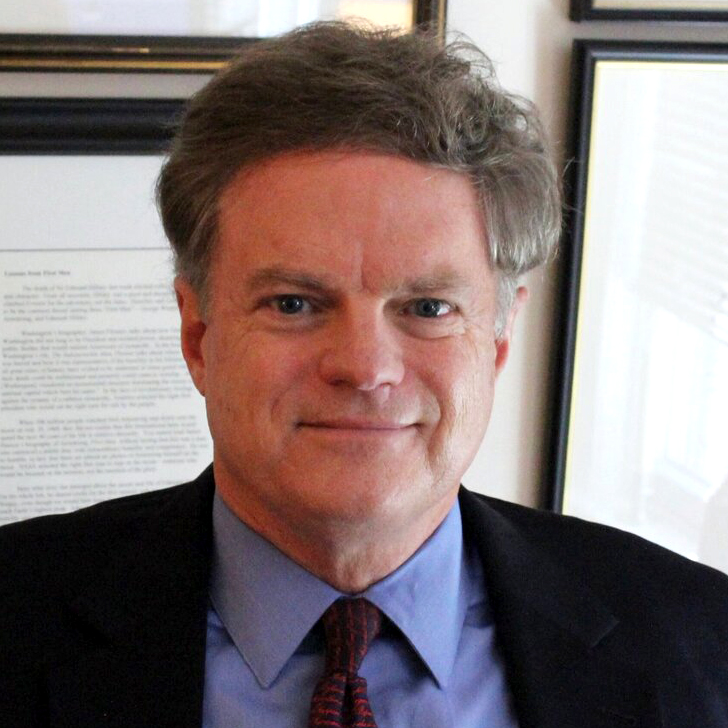About the Leadership and Communication course block
The Leadership and Communication course block is an exciting skills-building and career-enhancing program designed by distinguished, award-winning Ivy League academic experts and researchers in consultation with top executives and leaders from the real worlds of business, government, and the nonprofit sector.
A Penn path to effective, ethical, and career-boosting leadership
Drawing expertly on the social sciences, humanities, and data sciences, each of the five Leadership and Communication courses is scheduled especially for working adults and taught by dedicated and experienced Penn-affiliated scholars.
Each Leadership and Communication course brings you one step closer to having the intellectual understanding and professional skills needed for effective leadership and communication.
LEAD 1010, Leadership Theory, Practice, and Purpose: This intensive introductory course explores competing concepts and theories of leadership through lectures, readings, class discussion, and reflective writing assignments. Each week features a foundational element of leadership, from problem-solving to self-assessment to crisis communications. Through biographical analysis of effective public leaders, students learn to identify and develop their own distinctive leadership skills and strengths. By the end of the course, each student establishes the groundwork for a five-year leadership and communication career plan that may be further developed through additional certificate courses.
LEAD 1010 is a prerequisite for all other LEAD courses.
This course counts toward the Certificate in Leadership and Communication and degree concentration.
LEAD 1040: Professional Communication and Personal Development: This writing-intensive course is designed to enhance each student’s ability to communicate effectively in the workplace and other professional settings. Students apply the principles of positive psychology to enhance their personal development, learn best practices for professional writing and crisis communication, and practice organizing and editing their written and spoken communications for maximum impact. Assignments include presentations designed for different audiences, job-seeking and professional documents, and the opportunity to create or revise a five-year leadership and communication career plan.
This course counts toward the Certificate in Leadership and Communication and degree concentration.
Prerequisite: LEAD 1010
LEAD 2020, Leadership Lessons from the Social Sciences: Through lectures, readings, and written assignments, this course provides a survey of the best evidence-based ideas from social science research that impact leadership theory and practice. Readings from fields such as organizational sociology, political science, behavioral economics, game theory, and positive psychology offer perspectives on effective leadership and decision-making based on human behavior and relationships, offering students insight they can incorporate into their leadership plans and apply in a broad range of professional settings.
This course counts toward the Certificate in Leadership and Communication and degree concentration.
Prerequisite: LEAD 1010
LEAD 2030, Leadership Lessons from the Humanities: Learn leadership rhetoric, strategy, and principles from some of the most effective communicators and thinkers in history. Drawing from a range of philosophical and literary texts by Plato, Machiavelli, Shakespeare, and other great thinkers, the course explores a variety of moral frameworks and ethical perspectives on leadership. Videos, case studies, and writing exercises bring the readings to life and help students articulate relevant ideas they can incorporate into their leadership plans and apply in a broad range of professional settings.
This course counts toward the Certificate in Leadership and Communication and degree concentration.
Prerequisite: LEAD 1010
LEAD 3100, Leadership and Public Administration: Students are introduced to both classic and contemporary studies of how public laws and policies are translated into effective action, how and why government reform efforts succeed or fail, and complete an original case study on the ongoing revolution in public management theory and practice favoring public-private partnerships and “collaborative governance.”
Prerequisite: LEAD 1010
LEAD 3200, Leadership and Business Organization: Students interactively and critically study five of the most influential books ever published regarding why for-profit enterprises succeed or fail; do an original “management consulting” report on an actual business firm; and write a final paper on what, if any, particular individual styles or institutional structures predictably and reliably enable one to “succeed in business.”
Prerequisite: LEAD 1010
LEAD 3300, Leadership and Nonprofit Management: Students are immersed in research that profiles America’s vast and varied, large and growing “independent sector.” Students explore what works (and what doesn’t) when it comes to leadership and innovation in the non-governmental, not-for-profit sector. Counting only the about 1.4 million nonprofit organizations that are registered with the U.S. Internal Revenue Service, America’s charities, churches, private colleges, hospitals, and others nonprofit organizations have more $2 trillion a year in annual revenues, more than $5 trillion in total assets, and more than 14 million full-time employees. The focus case for the course is one of the nation’s oldest, largest, and most widely respected nonprofit organizations, Big Brothers Big Sisters of America. Participants in this course are introduced to an evidence-based approach to practicing nonprofit management as creating public value through boundary-spanning leadership.
Prerequisite: LEAD 1010
Data 1010, Introduction to Data Analytics: Effective leadership often hinges on the ability to collect, analyze, and communicate the impact of quantitative data sets. In this course, students discover how to use quantitative data in real-world problem identification, decision-making, and problem-solving. No math or statistics experience is necessary; the course instructs students in the programming language R and introduces key concepts in data analytics with broad professional applications.
Prerequisite: LEAD 1010
APOP 1000: Introduction to Positive Psychology: In the 20th century, the field of psychology made enormous and important strides in addressing mental health challenges. Today research in the field has expanded, inspired, in part, by Martin E.P. Seligman’s 1998 APA presidential address, to include the scientific study of optimal functioning and what helps people live full lives. This course focuses on the science of thriving—what does it mean to be “happy,” and how can one cultivate well-being at the individual and community level? Students explore the foundations of this science, understand a conceptual framework for well-being, and actively engage in activities that help to cultivate well-being. Drawing upon theory, empirical research, ancient and collective wisdom, we examine these topics critically and experientially and together build an engaged learning community.
APOP 1200: Human Flourishing: Strengths and Resilience: What does it mean to flourish? What are we like when we are at our best? What helps us bounce back from challenges and adversity? Continuing the exploration of the science of positive psychology, students delve deeply into the study of character strengths as a framework for building positive character and well-being, and explore the concept of resilience, or the ability to overcome challenging situations. In this course, we explore how we can leverage our strengths to more effectively contribute to the greater world and enhance our own well-being. We also study the physical and psychological protective factors that constitute resilience, and how they are cultivated. Students learn about these topics from a scientific and experiential perspective, both as individuals and within our learning community.
APOP 2000: Positive Psychology at Work: If flourishing is related to our lived daily experience, and approximately 50% of our waking hours are spent working, how do our workplaces contribute to, and diminish, our ability to thrive? Students are exposed to an array of research-informed strategies that have been applied in a variety of disciplines and workplaces, including business, education, health care, and nonprofit organizations. Exploration of case studies and salient research topics such as relationships at work, positive leadership, prosocial behavior, and our sense of meaning and purpose, guide our learning. Students gain an understanding of the variables that contribute to our ability to flourish at work and understand how we both experience and shape our work environments through our individual contributions.
LEAD 4000, Global Leadership and Problem-Solving: Over the last 200 years, despite wars, famines, and plagues, human beings in virtually every corner of the globe have become more likely to live longer, healthier, wealthier, and better overall. But global progress in human well-being has been neither linear nor universal. For instance, measured at living on just $5.50 a day per person, nearly 3.5 billion people still live in extreme poverty. Moreover, humankind now faces several unprecedented existential threats to human life itself, including nuclear weapons proliferation, global warming, and the persistence or spread of drug-resistant infectious diseases including ones once thought to be nearly eradicated.
This course is co-sponsored by Penn’s Fox Leadership International (FLI) program and its College of Liberal and Professional Studies (LPS). Drawing on FLI’s graduate professional curriculum in leadership and public administration, this course is designed to help students explore how different governance institutions—families and social networks; neighborhood or community groups; nonprofit or social sector organizations; for-profit firms; and, most importantly, government institutions themselves—can act, either independently or in tandem with each other, and either within or across regional or national borders, to maintain or improve human well-being.
Students sample and assess multiple and competing approaches to reforming public administration (also referred to as “public management”) and “creating public value,” including through public-private partnerships and “collaborative governance.” Through directive but wholly independent research, students are guided in optional critical reflections on several global human well-being challenges (elder care with a focus on China; economic development in Latin America; and energy with a focus on India), and required written reflections on several others (public-private partnership initiatives in Ghana, Japan, and New Zealand; education with a focus on Africa; and different governmental responses to the recent global public health crisis).
The prerequisites for this course are LEAD 1010, LEAD 3040, LEAD 3050, LEAD 3100, LEAD 3400, and LEAD 3500.
Courses are subject to change.
Penn LPS Online courses in Leadership and Communication are offered on an accelerated (8-week) schedule. Courses in this block include a weekly synchronous session.
All Penn LPS Online courses offer academic credit.*
Please note: Students completing this course block while enrolled in the online Bachelor of Applied Arts and Sciences (BAAS) degree are awarded a Certificate in Leadership and Communication upon completion of the degree. If you are enrolled in the online BAAS program and don't complete the degree requirements to graduate, you are not eligible to receive this certificate.
*Academic credit is defined by the University of Pennsylvania as a course unit (c.u.). A course unit (c.u.) is a general measure of academic work over a period of time, typically a term (semester or summer). A c.u. (or a fraction of a c.u.) represents different types of academic work across different types of academic programs and is the basic unit of progress toward a degree. One c.u. is usually converted to a four-semester-hour course.
The Penn Leadership and Communication team
Penn’s Leadership and Communication curriculum represents a team effort involving distinguished Penn-affiliated scholars and top present and former leaders in government, business, and the nonprofit sector. Both the 5-course Leadership and Communication certificate and the 12-course Leadership and Communication concentration were forged through a collaboration between Penn’s College of Liberal and Professional Studies (LPS) and Civic. As Penn’s home for lifelong learning, LPS offers high school, undergraduate, post-baccalaureate, graduate, summer, and online studies, as well as customized professional training with courses that span across academic fields. Civic works with universities, nonprofits, corporations, foundations, businesses, and governments to develop innovative programs in the fields of education, national service, civic engagement, conservation, public health, and more.
Meet the Leadership and Communication team
John Bridgeland
- Executive Chairman, Office of American Possibilities
- CEO, More Perfect
- Former Director, White House Domestic Policy Council
Chao Guo, PhD
- Professor, School of Social Policy & Practice, University of Pennsylvania
- Faculty Director, Partnership for Innovation, Cross-Sector Collaboration, Leadership, and Organization
- Associate Faculty Director, Fox Leadership International
Ferdous Jahan, PhD
- Senior Social Development Specialist, World Bank
- Senior Affiliate, Partnership for Innovation, Cross-Sector Collaboration, Leadership, and Organization
Don Kettl, PhD
- Former Dean, School of Public Policy, University of Maryland
- Professor Emeritus, University of Texas at Austin
- Senior Affiliate, Partnership for Innovation, Cross-Sector Collaboration, Leadership, and Organization
Marjorie Margolies
- Founder and President, Women’s Campaign International
- Senior Affiliate, Partnership for Innovation, Cross-Sector Collaboration, Leadership, and Organization
James O. Pawelski, PhD
- Faculty Director, Penn LPS Online Certificate in Applied Positive Psychology
- Professor of Practice and Director of Education, Positive Psychology Center
Charlotte Ren, PhD
- Robert A. Fox Leadership International Faculty Director and Professor of Practice in Strategy and Innovation
- Faculty Director for Research, Curricular, and Civic Initiatives, Partnership for Innovation, Cross-Sector Collaboration, Leadership, and Organization
- Senior Fellow, Mack Institute for Innovation Management, Wharton School












